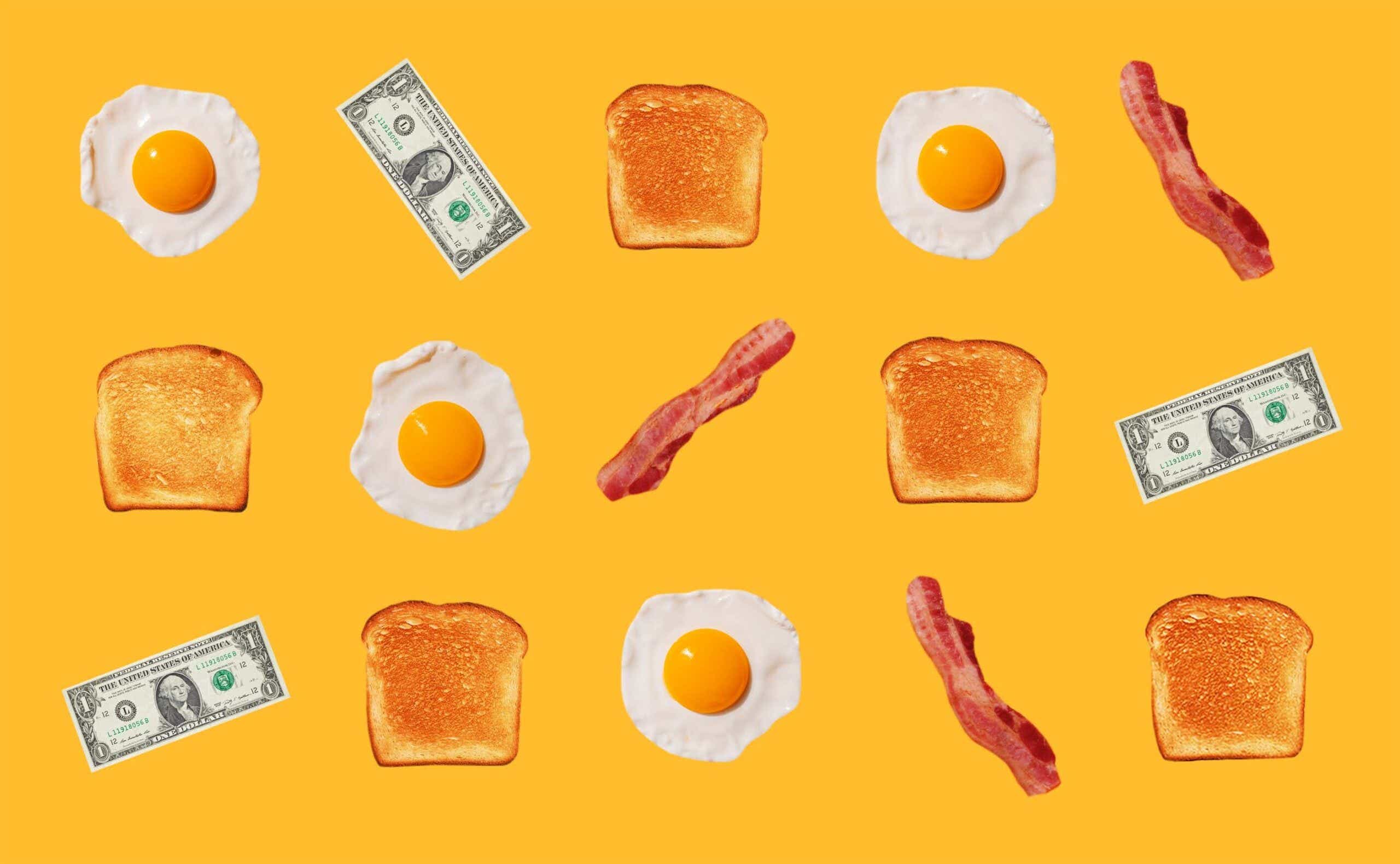In December, inflation in the U.S. hit its highest level in 40 years. We’re breaking down what that means for you — and what economists are forecasting for 2022.
How much more expensive have common products gotten?
Prices for consumer goods rose 7 percent in December as compared to the same period a year earlier. That’s the highest increase since June 1982, according to the Bureau of Labor Statistics.
Economists blame supply chain disruptions, which are causing product shortages that have hiked up prices pretty much across the board. Apparel prices grew by 5.8 percent, while the cost of food rose 6.3 percent. A pound of beef now costs on average 88 cents more than it did in December 2020, and 16 ounces of bacon is now $1.14 more expensive, according to NBC.
But it was the cost of used cars that really skyrocketed at a whopping 37 percent. Automakers have struggled to get their hands on the computer chips they need to put new cars on the road, which has increased the demand for used vehicles.
The cost of housing has also risen — and economists fear it will remain high even after we’re past the worst of the pandemic. “We’re not building as many homes as we need to,” an economist for the retail brokerage Redfin told the Washington Post. “We’ve been behind the problem for a long time. So I do expect home prices and rents to continue to increase.”
How bad will it get?
Many economists do expect inflation to fade throughout the year, but it’ll likely remain above pre-pandemic levels. There’s also concern that worker shortages caused by the spread of the Omicron variant and lockdowns in China to contain the virus may prolong or even worsen supply-chain issues, making inflation hard to tame.
What’s being done to keep inflation under control?
It’s up to the Federal Reserve to keep inflation at bay. This week, Fed chair Jerome Powell indicated that the agency was ready to raise interest rates in 2022 after slashing them to prop up the economy through the pandemic. (Manipulating interest rates is one of the main ways the Fed keeps inflation in check.)
But raising rates is a delicate maneuver. A dramatic increase to stamp out inflation may also touch off a recession, Powell warned.
“If inflation does become too persistent, if these high levels of inflation get entrenched in our economy and in people’s thinking, then inevitably that will lead to much tighter monetary policy from us, and it could lead to a recession, and that would be bad for workers,” Powell said Tuesday.









